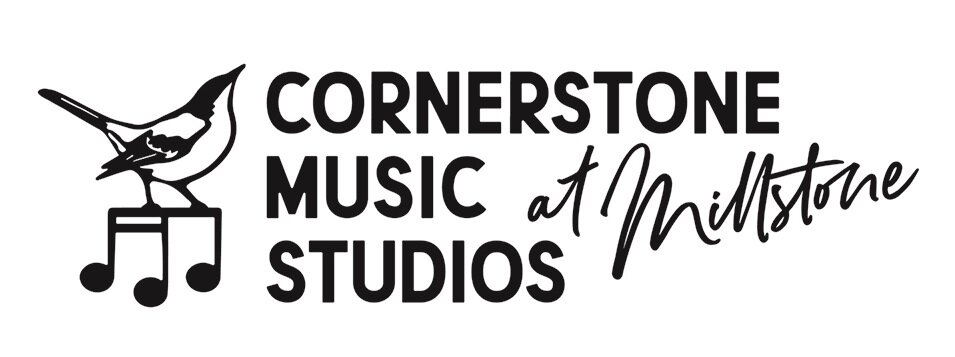Performance Anxiety Resources
It’s no secret that anxiety of any kind can rear its ugly head at any moment. We have certainly observed students struggle with performance anxiety and we would like to help! We hope you find the following resources and personal stories insightful and helpful.
Personal Story:
I have struggled with performance anxiety my whole life. The music studio where I took lessons growing up unfortunately didn’t offer any performance opportunities or recitals. Upon arriving at college, I learned I would have to complete a certain amount of solo performances in TCNJ’s concert hall. Although I was used to strumming and singing in front of an audience, I was not used to performing intricate classical guitar music in large spaces in front of sizable crowds. During one of my early performances, my hands were shaking so bad that I couldn’t play and had to walk off stage. Over time, my performances got better and better and although I still get nervous while performing, I’ve had enough positive performance experiences to know that I will make it through.
My advice to other people struggling with performance anxiety is to perform as often as you can in front of whoever you can. It can be as simple as performing a song for a friend or family member in your living room or going to a foreign space and performing your songs for nobody.
Adequate and efficient practice is also essential to controlling nerves. The more prepared you are, the more comfortable you will feel. I find that with difficult guitar solos, I don’t truly know them until I can visualize myself playing all of the notes without actually having my guitar in my hands.
Accepting the fact that perfection does not exist also helps with my nerves. There have been very few performances where I didn’t hit any wrong notes. I usually have better, more expressive performances when I don’t care if I hit wrong notes. Many times the audience won’t notice wrong notes if you don’t make it obvious that you just hit a wrong note.
If you have tried all of these things and still cannot perform in front of people successfully, a last resort is to see a therapist or doctor to temporarily prescribe you medication until you have had enough successful performances and gained enough confidence to know you can perform successfully even without medication.
I haven’t actually read any books about performance anxiety, but one book that has helped me with way of thinking and anxiety in general is The Way of Non-Attachment: The Practice of Insight Meditation by Dhiravamsa.
Resources:
The Way of Non-Attachment: The Practice of Insight Meditation by Dhiravamsa
Personal Story:
I LOVE square breathing. The first thing to get deregulated for me when I'm experiencing anxiety is my breathing and square breathing has helped me so much.
I’m also a big fan of the 5-4-3-2-1 method (Identify five things you can see, four things you can feel, three things you can hear, two things you can smell, one thing you can taste) for those backstage/before going up to perform moments.
Another tip I have is changing the narrative in your head about performing. At the end of the day, every performance is just practice. The audience is there not to be your judge and jury, but to take part in the experience and also practice being an audience (think of how hard it can be to sit still and pay attention for long amounts of time!).
Resources:
Personal Story:
When I'm singing a song (from a musical or opera), I try to actually be that character, not me singing as that character but actually be that character. It helps me to not feel like I'm on display, but that the character is. In a way, I wear their mask instead of mine.
For any other songs, I just try to be as prepared as possible and remind myself that it's going to be what it's going to be and if I make a mistake, I don't dwell on it, I in fact move on as quickly as possible to make sure I'm giving the best performance that I can.
I also try to concentrate on what I can control. Focusing on my breath is the one thing that keeps me calm and grounded. I also say to myself out loud "I can do this".
Personal Story:
I’ve always had performance anxiety, and I’ve never quite figured out how to get around it. The only real advice I have to offer is to take advantage of every opportunity to perform. There is no substitute for performing in front of people – you simply cannot simulate what a live situation feels like behind closed doors in the practice room. I’m pretty sure that the only way to develop some level of comfort with performing is to just do it; and then do it some more; and then do it some more after that.
Resources:
I have found that the following tools (meditation, breathwork, tapping, etc.) work well for my students (and me) when trying to de-escalate performance anxiety or any type of stress/anxiety:
Michelle Chalfant podcast - Helping children/teens with anxiety
Sharon Salzburg - breathwork meditation
Hannah Brown - anxiety meditation
Healthline article - EFT Tapping
Julie Schiffman - EFT Tapping video
I hope these resources are of some help to our students and others!
Resources:
Keep performing until it’s comfortable.
Learn Faster, Perform Better: A Musician’s Guide to the Neuroscience of Practicing






